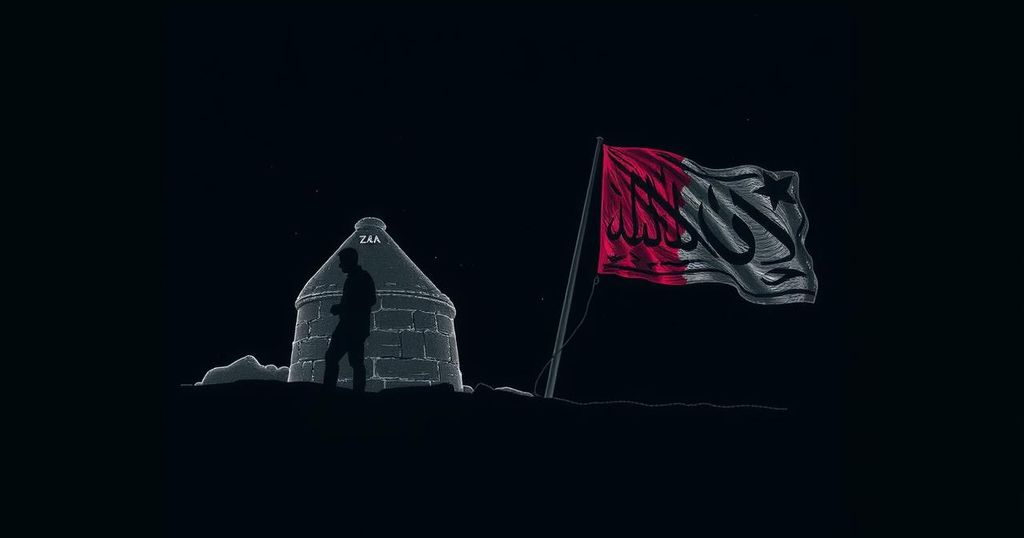Qatar’s Deceptive Role in the Israeli-Palestinian Conflict According to Dr. Einat Wilf

In an interview, Dr. Einat Wilf criticized Qatar’s support for Hamas, claiming it is a significant threat to Israeli security. She contended that Qatar’s role as a mediator is deceptive, as it actively enables Hamas while undermining Israel. Wilf urged Israel to reassess its approach towards Qatar, particularly in discussions surrounding hostages, emphasizing the need for a unified international stance against Qatar’s involvement with Hamas.
In a comprehensive interview with The Jerusalem Post, Dr. Einat Wilf, an Israeli political scientist and former Knesset member, candidly criticized Qatar’s role in the Israeli-Palestinian conflict. Wilf contended that rather than a neutral mediator, Qatar actively undermines Israel through its support for Hamas, which she argues poses a significant threat to regional stability. By equipping Hamas with the means to continue its military operations, Wilf believes Qatar enables the group to evade accountability for its actions against Israel, thereby perpetuating a cycle of violence. She further asserted that Qatar’s influence extends through its media outlet, Al Jazeera, which she described as a critical tool in promoting anti-Israel narratives. Wilf unequivocally stated that efforts to negotiate with Qatar regarding hostage situations are misguided. She criticized both Israel and the United States for engaging with Qatar as if it were a legitimate mediator, emphasizing that Qatar shares culpability with Hamas in holding hostages. According to Wilf, it is imperative for Israel to recognize Qatar as an adversary and apply pressure on it to sever ties with Hamas instead. This stance, she believes, could mobilize international opinion to assist in the recovery of the hostages held by Hamas. Discussing the broader implications of Qatar’s actions, Wilf expressed concern over its role in sustaining Hamas’s governance in Gaza while simultaneously portraying itself as a benign broker. She lamented Israel’s missed opportunity to counter Qatar’s narrative and highlighted the need for Israel to rally public opinion both domestically and globally against Qatar’s undermining actions. Wilf envisions a strategic approach that involves leveraging the current political climate to diminish Qatar’s standing as a NATO ally and its influence within the international community, thereby effectively challenging its support for Hamas.
The role of Qatar in the Israeli-Palestinian conflict has come under scrutiny, particularly regarding its support for Hamas, which has been implicated in acts of violence against Israel. Dr. Einat Wilf’s interview sheds light on this contentious relationship, arguing that Qatar’s financial and material backing has fortified Hamas’s position within Gaza, posing an ongoing threat to Israeli security. Additionally, Qatar’s state-owned media outlet, Al Jazeera, has been viewed as a platform that perpetuates anti-Israel narratives, complicating the perception of Qatar as a neutral party in the conflict. Wilf’s insights underscore the complexities of understanding Qatar’s influence and the necessity for a reassessment of diplomatic approaches involving the nation.
In conclusion, Dr. Einat Wilf’s interview underscores the complexity of Qatar’s involvement in the Israeli-Palestinian conflict. She asserts that Qatar’s support for Hamas and its capacity to shape public narratives through its media are significant challenges for Israel. Furthermore, she advocates for a robust reevaluation of Israel’s diplomatic strategies, suggesting a shift in focus towards exposing Qatar’s role as an adversary rather than a mediator. By rallying domestic and international support against Qatar, Wilf believes Israel can better confront the existential threats posed by Hamas and improve the situation for hostage families.
Original Source: m.jpost.com








